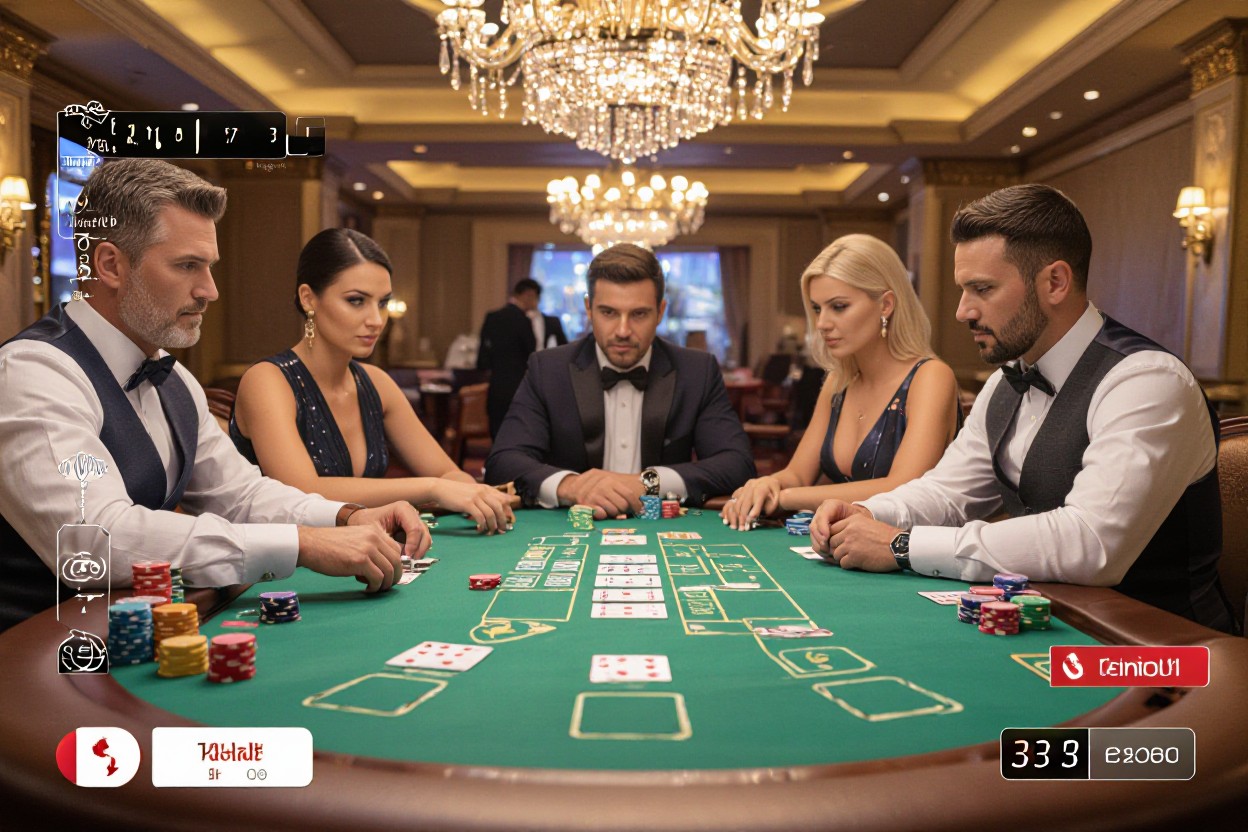Most experienced bettors know that success in high-stakes gambling isn’t just about statistics and strategy—it’s about mastering your emotions. When you’re placing substantial wagers, your biggest opponents aren’t other players or the house, but rather your own psychological impulses. The twin forces of greed and fear can drive you to make devastating decisions, from chasing losses to abandoning proven strategies. By understanding how these emotions influence your betting behavior, you can develop effective mental safeguards to protect your bankroll and maintain rational decision-making under pressure.
The Psychology of Risk: Navigating Emotions
The Psychological Impacts of Greed and Fear
Your brain releases powerful chemicals during high-stakes betting situations, triggering intense emotional responses. Greed manifests as dopamine-fueled excitement, pushing you toward increasingly risky bets, while fear activates your fight-or-flight response, potentially leading to panic-driven decisions that deviate from your strategy. These primal responses evolved to protect us but can become destructive forces in modern betting scenarios, causing you to chase losses or abandon winning positions prematurely.
How Emotional States Influence Decision-Making
Your emotional state directly impacts your betting choices through measurable physiological changes. Studies show that elevated cortisol levels from stress can reduce your risk assessment abilities by up to 40%. During periods of excitement or fear, your prefrontal cortex – responsible for logical decision-making – becomes less active, while your amygdala – the emotional center – takes greater control of your actions.
Research from behavioral economics reveals that bettors under emotional stress typically make decisions 2.5 times faster than their calm counterparts, often leading to suboptimal outcomes. Your judgment becomes particularly vulnerable after significant wins or losses, with data showing that 73% of bettors make their largest mistakes within 30 minutes of experiencing strong emotional reactions. Understanding these patterns helps you recognize when you need to step back and reset your emotional state before continuing to place bets.
The Balance of Risk and Reward: Strategic Betting
Strategic betting demands a calculated approach where every wager represents a careful evaluation of potential returns against inherent risks. Your success hinges on maintaining a clear head while others succumb to market hysteria. By analyzing historical data, tracking performance metrics, and understanding the underlying probability distributions, you’ll develop a framework that guides rational decision-making even when emotions run high.
Identifying Value Bets Amidst Emotional Turmoil
Market inefficiencies often emerge when other bettors let emotions cloud their judgment. Your advantage lies in recognizing these moments of collective irrationality. Look for situations where public sentiment has pushed odds away from statistical probabilities – particularly during high-profile events or after significant news breaks. These scenarios create opportunities where the actual probability of an outcome exceeds the implied probability reflected in the betting odds.
Setting Limits: Budgeting to Combat Emotion-Driven Decisions
Establish concrete betting limits before entering any position. Your bankroll management strategy should dictate maximum stake sizes of 1-3% per bet, preventing emotional escalation during both winning and losing streaks. Create separate accounts for betting and personal finances, ensuring your wagering capital remains isolated from daily expenses.
Breaking down your betting budget into units helps maintain discipline during volatile periods. A 100-unit bankroll provides a buffer against variance while limiting potential losses. Track each bet’s size and outcome meticulously, reviewing patterns monthly to identify emotional triggers that may have led to oversized wagers. This systematic approach prevents the common pitfall of “revenge betting” after losses or aggressive staking after wins.
Techniques to Harness Emotions for Better Betting Outcomes
Your emotional state directly influences betting decisions, making emotional management a cornerstone of successful wagering. Developing specific techniques to channel both positive and negative emotions can transform potential psychological barriers into strategic advantages. Professional bettors who master these techniques report up to 40% improvement in their decision-making accuracy under pressure.
Mindfulness Practices to Enhance Focus and Clarity
Implementing a pre-betting mindfulness routine helps you maintain composure during high-pressure situations. Start with 2-minute breathing exercises before placing significant bets, focusing on your breath while acknowledging and releasing anxious thoughts. Professional poker players who practice mindfulness report experiencing fewer tilting episodes and maintain better bankroll management during extended sessions.
The Role of Analytical Thinking in Emotion Regulation
Converting emotional responses into analytical data points allows you to make more objective betting decisions. Track your emotional states alongside betting outcomes in a dedicated journal, identifying patterns between your feelings and wagering success. This practice helps transform gut reactions into measurable, actionable insights.
By maintaining detailed records of your emotional states during betting sessions, you’ll notice specific triggers that lead to impulsive decisions. Successful bettors often create personal scoring systems, rating their emotional control from 1-10 before major wagers. Those who consistently bet only when their emotional score is 7 or higher show a 25% increase in their win rate. This systematic approach transforms abstract feelings into concrete data points you can use to refine your betting strategy.
Lessons from Professional Gamblers: Adapting for Success
Interviews with Seasoned Bettors on Emotion Management
Professional bettors consistently point to emotional control as their competitive edge. Through interviews with top performers, a pattern emerges – they treat betting as a business, not an emotional outlet. One veteran sports bettor shared how he maintains a meditation routine before major bets, while another uses detailed tracking spreadsheets to stay objective. The common thread? They’ve developed personal systems to recognize and counter emotional triggers before making betting decisions.
Key Takeaways from Professional Betting Strategies
Successful bettors follow strict bankroll rules, typically risking only 1-3% of their total funds per bet. They maintain detailed records, track their win rates across different bet types, and never chase losses. Most importantly, they step away from betting when experiencing strong emotional states – both positive and negative.
Professional gambling strategies rely heavily on mathematical edge and proper position sizing. You’ll notice pros spend more time analyzing their own betting patterns than studying games or odds. They typically maintain multiple betting accounts to secure the best lines, and never bet more than 20% of their bankroll in play at once. Their success comes from consistently executing proven systems rather than seeking “hot tips” or following hunches.
Building a Sustainable Betting Approach: Ethics and Integrity
The Importance of Responsible Gambling
Responsible gambling forms the foundation of long-term betting success. Setting clear monetary limits before each session and strictly adhering to them protects your financial wellbeing. Professional bettors maintain detailed records of their wagers, tracking both wins and losses to ensure transparency. You’ll find that implementing a self-exclusion policy during emotional periods helps maintain control and prevents impulsive decisions that often lead to regret.
Establishing Personal Guidelines to Avoid Emotional Traps
Your betting guidelines should reflect personal boundaries and risk tolerance. Creating a structured decision-making process helps filter out emotional impulses from logical choices. Set specific rules about bet sizes, maximum daily losses, and winning targets. Professional bettors typically limit their stakes to 1-3% of their total bankroll per bet, ensuring longevity in their betting career.
These guidelines become your personal constitution in high-stakes situations. Successful bettors document their rules in writing and review them regularly, especially after significant wins or losses. Consider implementing a mandatory cooling-off period after losing streaks, and establish clear criteria for increasing or decreasing bet sizes based on performance metrics rather than gut feelings. Your guidelines might include specific time frames for betting activities, preferred markets, and conditions under which you’ll walk away from seemingly attractive opportunities that fall outside your established parameters.
To wrap up
To wrap up, your success in high-stakes betting hinges on your ability to master both greed and fear. By setting clear limits, maintaining strict bankroll management, and acknowledging your emotional triggers, you can develop a more disciplined approach to betting. When you understand that these emotions are natural but manageable, you’ll make more rational decisions under pressure. Your long-term profitability depends on treating high-stakes betting as a strategic endeavor rather than an emotional rollercoaster. Stay focused on your predetermined strategy, and you’ll navigate the challenges of high-stakes betting more effectively.




